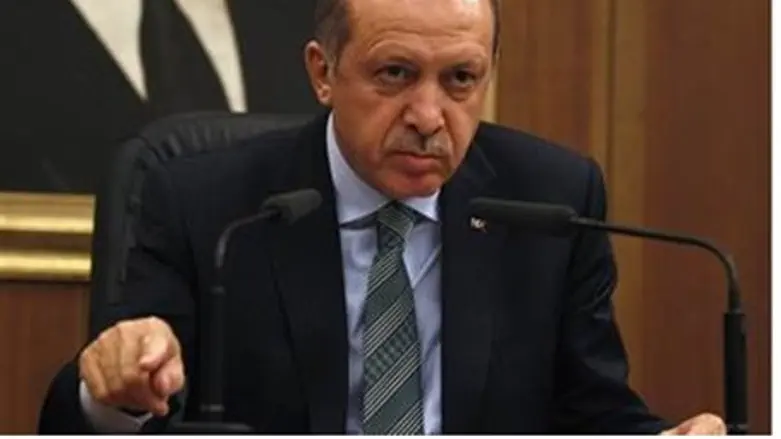
Turkey sought to calm speculation Tuesday it was planning to invade Syria, saying it would not act unilaterally but has a right to protect its borders.
"To interpret our border security measures as 'Turkey is going to war'... is not very rational," presidential spokesman Ibrahim Kalin told a press conference in Ankara.
"A country has a natural right to protect its borders," he said.
Kalin added that Turkey would not take any "unilateral steps" and would continue to act in line with the international community in efforts to resolve the Syrian crisis.
Pro-government media outlets had claimed that the government was planning a cross-border operation in Syria, which would involve 18,000 ground troops and include the creation of a 110-kilometer (68-mile) long buffer zone within Syria.
Turkey's top security body, chaired by Turkish President Recep Tayyip Erdogan, held a meeting on Monday and released a statement that voiced concerns over recent developments in Syria.
However, it made no mention of immediate military action.
On Saturday, two days after an attack by Islamic State (ISIS) jihadists that left more than 200 civilians dead in the Syrian city of Kobane, Kurdish forces drove the terrorists out of the highly symbolic border town which Kurds had wrested from ISIS in January.
The ISIS attack was widely seen as vengeance for a series of defeats at the hands of Kurdish militias, particularly the jihadists' loss of Tal Abyad, another Syrian border town further east, on June 16.
The Kurds' advance has alarmed Turkish officials, who claim the Kurdish militiamen are seeking to unite the Kurdish-majority areas of Syria and create an independent Kurdish state - something Turkey opposes.
Authorities fear the growing power of Kurdish forces will embolden some 15 million Kurds in Turkish-occupied Kurdistan.
Kalin again denied persistent claims by Kurds of Turkish collusion with the jihadists, saying that Turkey "has never had and will never have any relations" with the jihadists. Earlier this year the Turkish government was rocked by a series of exposes appearing to show direct government support for jihadists in Syria.
Turkey is one of the fiercest opponents of Bashar al-Assad's regime in Damascus and has taken in more than 1.8 million refugees since the war in Syria began.
Turkey has repeatedly called for the creation of a security zone inside Syria to protect its borders. But the idea has received lukewarm support from its Western allies.
Main opposition Republican People's Party (CHP) leader Kemal Kilicdaroglu warned the government not to "drag Turkey into trouble" by taking military action in Syria, saying it would have a "high cost."
But Prime Minister Ahmet Davutoglu on Tuesday responded to Kilicdaroglu by saying: "If some people attempt to change the map (our borders), we will react."
"We won't let Turkey be exposed to a fait accompli, or be dragged into trouble," Davutoglu said on Tuesday.
